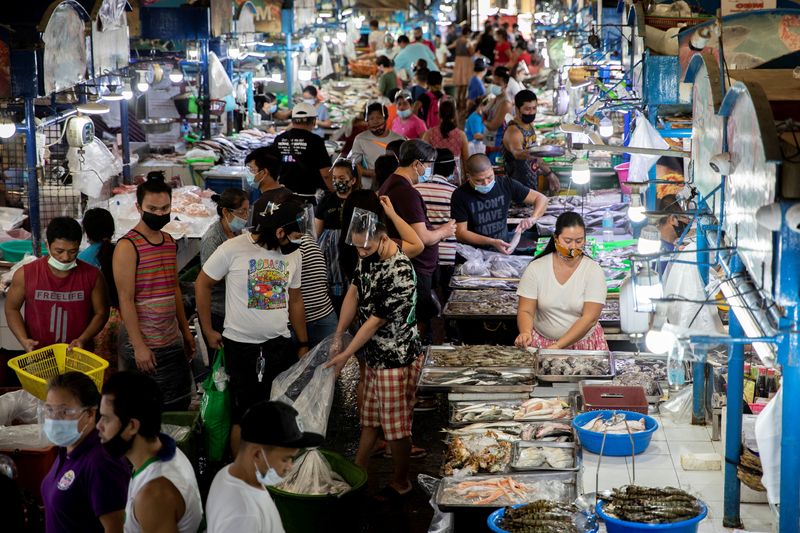By Enrico Dela Cruz and Karen Lema
MANILA (Reuters) - Philippine inflation surged to the highest level in nearly four years in June, cementing expectations for more interest rate hikes and increasing the prospect of the central bank acting more aggressively to temper price pressures.
The consumer price index rose 6.1% in June from a year, marking the third consecutive month inflation has been above the official 2%-4% target band, driven mainly by higher transport and utilities' costs, as well as food prices, the statistics agency said on Tuesday.
The Philippine Statistics Authority has yet to release core inflation figures since shifting to the new 2018 base year in determining changes in consumer prices.
The headline figure outpaced the 5.9% median forecast in a Reuters poll, but was within the 5.7%-6.5% range projected by the central bank for the month.
Inflation in the first half of the year averaged 4.4%.
The Bangko Sentral ng Pilipinas (BSP) may consider bigger interest rate hikes to support a weak Philippine peso and contain inflation, though will not be obliged to match policy tightening by the U.S. Federal Reserve, Governor Felipe Medalla said last week.
Speaking ahead of the June inflation data, Robert Dan Roces, an economist at Security Bank in Manila, said the BSP's Monetary Board "might consider a one-time, preemptive 50 basis points policy rate hike when it meets on Aug. 18 if inflation's upside risks remain persistent."
The BSP has tightened its monetary policy to curb inflation pressures with back-to-back rate hikes of 25 basis points in May and June.

A weakening peso could also help push up inflation, while also curbing consumer purchasing power.
The narrowing gap between Philippines and U.S. interest rates has weighed on the peso, which is trading near a 17-year low against the U.S. dollar.